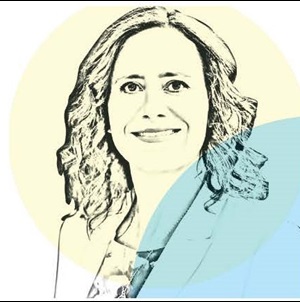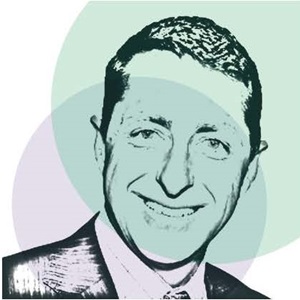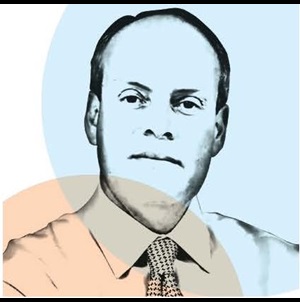
Calvin McDonald (Rotman MBA ‘00)
President and CEO, lululemon
In the earliest day of COVID-19, we asked ourselves a fundamental question: What is the most important asset that we must protect above all else? It became immediately clear that our overarching priority would be protecting our people and our community. This informed our decision to be among the first major retailers to close stores across all of our markets worldwide, as well as our early commitment to provide pay protection to our employees. The question of whether to furlough people or keep them on our payroll was a critical early test for us: How would shareholders react to this expenditure? How long would the closures last? We had no idea, but we knew only one decision was right for us. As demand through our e-commerce business grew, we set up stores for distribution and brought people back to serve our guests in a new way.
Employee expectations have evolved over the pandemic. The veil of leadership has been lifted: Employees expect leaders to show vulnerability and connect with their people in human and authentic ways. They also expect companies to be proactive and take a public stand on social and civil issues. And importantly, the expectations for what constitutes a ‘place of work’ have evolved. This new wave of working has become a global revolution that will fundamentally change the future of the workplace. Leaders must now figure out how to blend remote, hybrid and in person workplaces to support their business priorities. Remote work and its impact on employee retention will definitely accelerate the battle for the best talent.

Michael Medline
President and CEO, Sobeys
If you had told me years ago that the defining moment of my career would involve plexiglass, I would have laughed. But it’s true: Early one morning in March 2020, I was on an call with grocers from around the world, including Asia and Europe. Many of them were already in the thick of the pandemic — weeks ahead of Canada — so I was soaking up everything they had learned up to that point. My brain was racing when, suddenly, it occurred to me: plexiglass shields would be an amazing way to protect our people and customers. My instincts told me that, even if it ended up costing us millions (it did), it would be worth it if we saved even one life. I muted the call and texted my colleague: ‘Let’s put the order in right away.’ There was no time for consultation or due diligence; it was a pure gut decision.
Our move on plexiglass led the way for customer-facing businesses across Canada, and I will be eternally grateful to every teammate at Empire who made it happen. No amount of crisis training prepares you for moments like that. But when your organization has a strong set of values, it helps put you on the right course. The pandemic laid bare the reality that our decisions as corporate leaders — the majority of them — need to be focused on human beings. When the chips were down for us and we feared a lack of PPE and cleaning supplies could shut down some of our stores, it was other corporations — not the government — that came to our rescue. Our teams worked closely with Scotiabank, RBC, RioCan, OMERS, Maple Leaf Foods, Cineplex and Maple Leaf Sports & Entertainment. They selflessly lent us their contacts and suppliers — despite facing some of the darkest days of their own. In my view, COVID-19 didn’t expose the evils of capitalism; it exposed its best side. Now we need a concerted effort to maintain and build on these principles.

Rebecca McKillican
President and CEO, McKesson Canada
The Canadian pharmaceutical supply chain is ‘Always On.’ It entails a complex network of manufacturers, logistics providers and cold chain protectors spanning dozens of countries and regulatory environments on a daily — often hourly — basis. When COVID-19 hit, there was no playbook to follow. It affected all of our distribution centres, pharmacies, partner hospitals, doctor’s offices and clinics at the same time, for months on end. As a frontline healthcare provider, we couldn’t shut down our operations. Thousands of employees across the country continued to deliver life-saving products to hospitals and pharmacies. We placed health and safety at the centre of everything we did. This included rolling out an enhanced employee support program with financial, social and healthcare support.
The pharmaceutical supply chain is truly global, which posed its own set of challenges. Countries such as India, China and others that export ingredients used for common pharmaceutical products were in various states of lockdown and halted their exports over fears about caring for their own citizens. We needed to remain calm and discourage hoarding by our customers. On March 18, 2020, we issued the first of what became a daily customer update. Our message was that everyone needed to stick to their regular ordering patterns, for the sake of all Canadians. Imagine telling hospital staff that their ordering behaviour is going to be monitored and scaled back if unusual activity is observed. People were not happy, but it had to be done. For us, the pandemic was a baptism by fire. It made us stronger. It made us braver. But most importantly, it made us more human.

Dani Reiss
CEO, Canada Goose
In the last week of January 2020, China shut down, which meant that lots of companies around the world would be left without inventory to sell. We realized pretty quickly that Canada Goose was better positioned than most: As a Canadian company that manufactures almost all of our products in Canada, we seemed to be in a pretty good position. Or so we thought. In March, all of our factories, stores and offices around the world closed down, and fear set in. How can you run a business when the whole world is closed? We looked at every possible scenario, and none looked good. Fortunately, our balance sheet was strong, but we had to prepare for the worst.
Even in our best-case scenario, we would have to lay people off. That realization was crushing. In my 25-plus years with the company, we had only experienced growth. But there was no way we could afford to spend like a big company if we were going to be forced to be smaller for months on end. No one had a clue how long this would last. Letting go of more than 100 employees was one of the hardest things I have ever had to do. We turned our attention to taking care of our employees in every way possible: We started an Employee Support Fund for workers who weren’t able to access government assistance, and our executive team seeded the fund through voluntary pay cuts. The response was overwhelming. Many other employees voluntarily contributed without being asked. It made me realize there was hope for humanity. We quickly decided to produce whatever PPE we could, retrofitting our factories and recalling and retraining many of our workers. All eight of our facilities churned out PPE for the dedicated Canadians on the front lines, united in working for a cause that was greater than ourselves.

Sabrina Geremia
VP & Country Manager, Google Canada
Even prior to the pandemic, our work routine was largely spent in a hybrid state — a mix of face-to-face and video meetings with Googlers and customers around the world. With the onset of the pandemic, every business out there needed to shift to digital, and fast. To help with this, we launched free access to our video conferencing service, Google Meet, and expanded access to the already-free suite of Google for Education tools. We found ourselves living in a once-in-a-generation digitization moment and understood the importance of helping our communities and the 1.2 million businesses in Canada who were forced to shift to digital overnight. In the early weeks of work-from-home, we gathered leaders from across our organization to brainstorm the answers to one question: How can we support Canadians and Canadian businesses as we navigate a global pandemic?
Small and medium-sized businesses (SMBs) account for a staggering 98 per cent of Canadian companies. And according to the OECD, closures hit SMBs the hardest. At the start of the pandemic, very few were digitally enabled. Our small business stream worked fast and furiously to bring them online. In May of 2021 we announced a million-dollar commitment to scale our Digital Main Street’s ShopHERE program, and ShopHERE powered by Google was born. In the weeks to follow, FedDev Ontario and the provincial government announced a $57 million investment to expand the program across Ontario.
Seeing our world turned upside down has only reinforced my commitment to empowering people of all ages and backgrounds to engage with technology. Not as an end in itself, but as a means to an end. I’ve worked in this sector for two decades, and what my colleagues and I are really in the business of is helping people succeed, stay informed and most importantly — stay connected.

José E. Cil
President and CEO, Restaurant Brands International
In the first week of March 2020, Tim Hortons was launching our annual Roll Up the Rim campaign. As most Canadians know, this involves unrolling the top of a coffee cup — sometimes using your teeth — to see whether there is a prize offer printed on the inside. But in the midst of a public health emergency, a program that required people to hand over a chewed-up coffee cup to claim a prize was out of the question. We made the difficult (but correct) decision to adjust the contest. Over 72 sleepless hours in a windowless Toronto boardroom, we redesigned the campaign to be almost entirely digital. We were already on a path to digitize many of our activities, and the pandemic accelerated those plans.
Effective communications are critical in a crisis. We established a daily video call with our leaders from around the world. Every subject matter expert we had was on these calls, representing all of our teams — food safety, quality assurance, health and safety, HR, operations, marketing, digital, communications, government relations, legal and franchisee relations. The group quickly grew to more than 60. Through the spring of 2020, we led the restaurant industry in the level of support we made available to our restaurant owners. To support their immediate liquidity challenges, we deferred rental payments and in many cases absorbed rents outright, negotiated custom-tailored bridge-loan programs with the banks, deferred many capital investment programs to future years and pulled forward various credits by almost a year, helping owners put cash into their bank accounts to pay team members and keep their restaurants open. It is tempting to lose sight of how much was at stake and how frightening the situation was in the spring of 2020. For so many people, the simple act of showing up at work was an act of bravery.

Brian Hannasch
President and CEO, Couche-Tard
The Convenience Store industry is often at its best in times of crisis. During countless hurricanes and other natural disasters we have shown how valuable we are to communities and customers in need. Our store team members have always been endlessly brave and inventive in keeping stores stocked, fuel available and support given to first responders and healthcare workers. But with COVID-19, for the first time, we had to do this on a global scale. We had never considered how to supply massive amounts of masks; how to close, clean and reopen infected stores within hours; or how to set up social distancing and safe payment methods. I fully trusted our local leadership to come up with solutions. Our franchise folks in Hong Kong alerted us to mask production in China and suggested we fly one of our corporate jets there to load it up with masks, which we did. Early on, we were able to distribute masks across the network for our team members to wear and for customers to purchase.
Keeping team spirit up often felt more challenging than running the business. Putting together team-building activities and supporting mental health at this level was uncharted territory for us. As always, we trusted that local leadership knew their people best, so we took cues from them and shared best practices across the organization. When I reflect on what I learned as a CEO during COVID, to be honest, it was actually nothing new to me: trust your team and always say thank you.

Brian Porter
CEO, Scotiabank
During my 40-year career in banking, I have experienced debt crises in Asia and Latin America; the dot-com bubble; and of course, the global financial crisis of 2007-08. But the COVID-19 pandemic was different: This was a health crisis with financial consequences, not a financial crisis. But my experience told me this: When you operate from a set of strong principles, trust your team, have patience and a willingness to communicate, you are well equipped to deal with whatever fate hands you.
Communication was non-stop for us. I would have short calls throughout the day with team members and in between them, calls with customers, government officials, regulators and competitors. It was pretty chaotic — more like playing improvisational jazz than conducting a symphony orchestra, as Dan Rees, our head of Canadian banking, described it — but the calls were effective in keeping a constant flow of information moving. That was an approach I favoured even before the pandemic.
Some of my favourite moments were visits to our branches — delivering coffee and Sobeys gift cards to thank our teams on the front lines for their courage and dedication. Some of our competitors closed hundreds of branches, but Dan refused to overreact. We knew many customers — including the elderly and small businesses — preferred to visit our branches in person. Dan decided to keep as many of our more than 900 branches open as possible — 98 per cent in total — but with shorter hours and with the most comprehensive health measures we could implement. Meanwhile, from our call centres, we proactively reached out to our customers to offer assistance before they asked for it. Banking has always been about one thing: relationships. And the strongest relationships are forged during challenging times.
Net proceeds from the book are being donated to COVID-19 recovery across Canadathrough United Way Centraide, with $3.5 million raised by press time.
Share this article: